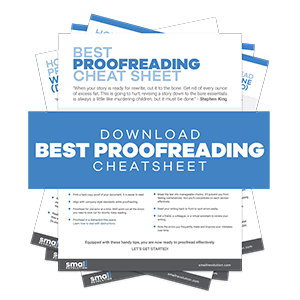Let me guess…
You’re a decent copywriter.
You’ve read several blog posts on copywriting. You’ve subscribed to a free weekly email on content marketing. And even follow the top 10 copywriters on social media.
You’ve landed a few well-paying copywriting jobs.
But when you try to write your own sales copy…
You don’t know where to begin. You’re unsure what to write. You feel like hurling your computer out of the window.
Does this sound familiar? Well, you’re not alone.
Not everyone can become a copywriter. But, copywriters have a few commonalities that go into writing excellent sales copies.
These traits are not inherited. They’re learned.
Thus, invest your time and learn how to become a great copywriter and meet your client’s expectations. Now, let’s take a look at the top three traits that copywriting clients are looking for.
Refined Writing Skills
As a copywriter, it’s quite easy to produce repetitive content. As such, it’s crucial that you continuously develop your copywriting skills.
Enhancing your skills helps you refine your writing style, and boost your creativity. You’ll also learn current trends in copywriting as well as the best ways to hone your content.
To become an excellent writer, you need to write well. But, this isn’t as simple as it may sound.
Here is how you can improve your content writing skills:
Write To One Person
When you’re writing, always try to focus on one person. Try to grab their attention as much as you can.
To make your marketing campaign as effective as possible, you need to share your knowledge in the most effective way. Get personal.
Check Your Grammar
When you’re a copywriter, you can unknowingly slip up on your grammar. This mainly occurs if you are handling several tasks at the same time or working on a short deadline.
Proofread your work using writing assistants or other sites that offer essential writing support.
Killer Headline
Headlines are magnetic. They attract both your content readers and the search engines.
Readers will only clink the link to your content if the heading sounds interesting to them. Advertising legend David Ogilvy insists that copywriters spend more time considering your heading.
To quote him:
On the average, five times as many people read the headline as read the body copy. When you have written your headline, you have spent eighty cents out of your dollar.”
Stellar Research Skills

Effective copywriting requires excellent research skills. Experienced copywriters will tell you that writing good copy is 90% research and 10% actual writing time.
Great copywriters can effortlessly search, locate, gather, analyze, interpret, and verify sales information.
Poor-quality research means that you’ll end up with shoddy facts. Note that shoddy facts will cost your voice of authority as a copywriter.
Interestingly, many copywriters don’t know how to make the best use of their research. As a copywriter, you need to understand what you’re writing about, who will use it, and why.
You don’t need to have a good memory. You only need to be internet-savvy and have the urge to find answers.
Some of the types of user research for copywriting include:
- Ethnographic field studies
- Diary studies
- Customer feedback
- Interviews
- Collecting information from focus groups
Here are four reasons why stellar research is essential copywriting:
I. Focus On Your Clients’ Target Audience
The problem with many copywriters is they are so eager to write that they fail to create a piece that gets their client results.
You’d be surprised at how many copywriters have skewed information about their audience.
To communicate with your client’s target audience, you need to know who they are. Get to know the value you are offering them.
What exactly do they want? How best can you solve their problems through your message?
Your mission should always be to understand your audience before you start writing.
II. Understanding The Difference Between Feature And Benefits
Legendary copywriter and best-selling author Joe Sugarman puts it best,
Every product has a unique personality and it is your job to find it.”
You need to sell the solutions your client’s products provide, instead of the actual product. How does the product’s unique personality improve or enhance the customer’s life?
In-depth research on the topic and product you’re writing about will help you transform features into benefits. That way, you’ll easily know what to cover in your pieces and generate sales for your clients.
III. Gather Credible Facts From Internal Or External Sources
If you want to be viewed as a trustworthy copywriter, you have to back up your insightful information with credible facts.
Gather a lot of information to give your copy a boost. This information can be collected from:
- Killer statistics about the product or service you’re writing on
- Incredible case studies
- Winning testimonials
- Noteworthy media mentions
Having credible facts is enough proof that your work is research-based. You only need to know what to search for and utilize the facts you gather in order to take your copywriting work to the next level.
IV. Analyze Your Competition
Without a careful study to uncover your content’s prospective customers, you may never know who your competitors really are.
How do your clients’ competitors market their products or services? How can you come up with better solutions to their needs through your content?
The more you research, the greater you develop a solid understanding of your:
- Competition
- Ideal customers
- Client’s products
SEO Copywriting Skills

SEO copywriting is not as simple as it may seem. You need to learn what savvy SEO copywriters do every day by taking an SEO copywriting course.
SEO copywriting has revolutionized the way marketers engage and convert leads into customers. Well-researched, quality content is the driver of SEO. Without it, your content will fail in two ways:
- You won’t rank for keywords
- You’ll be unable to turn your visitors into customers
Effective copywriting ensures your content gets clicks, attention, and conversions. Therefore, whether you’ve just landed a copywriting job or you’re an experienced SEO copywriter, you need to know the precise places to include SEO. Here are a few of them:
- Page Title/Heading
- Subheadings
- Meta description
- Body content
- Conclusion
Although including keywords in these sections is essential, never engage in keyword stuffing.
Google monitors your content keywords, and thus you need to use your keywords naturally. You can achieve this by using keyword variations throughout your content.
As a copywriter, your first step is to focus on SEO keyword research. Proper keyword research includes the following two steps.
Keyword mission statement
Formulating your mission statement helps you stand out from the crowd.
If you rank on search engines, how will this help your readers? Always consider your mission statement before you start writing.
List relevant keywords
If your mission is clear, it’s easy to come up with relevant or variant keywords.
Learn From the Best With a Small Revolution Copywriting Course
Creating content for multiple clients or websites is not easy. However, if you follow a defined process, you can easily meet your clients’ demands.
And while you may not be a natural copywriter, it’s something you can learn.
By investing in a copywriting course, you’ll learn:
- The best copywriting process
- Practical copywriting techniques
- Content marketing strategies
Want to learn more about these three essential traits that clients are always looking for? Enroll in a copywriting course today and land well-paying and lasting copywriting jobs.


